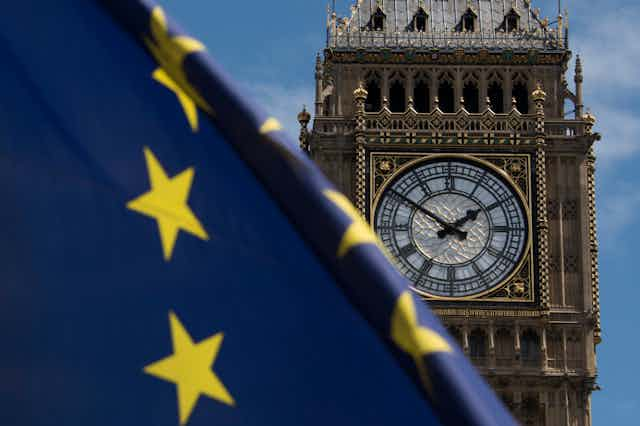Evolution occurs in the long term, politics in the short. For this reason, evolutionary perspectives are usually little use for analysing day-to-day political developments. Still, some events ignite tendencies that are wired very deep in human psychology. Brexit is one of these.
The decision by the UK electorate to leave the European Union has had an electrifying effect on the media, on financial markets and even on interpersonal relationships. Can evolutionary psychology do anything to explain the extraordinary impact of Brexit?
The answer is: yes, within limits. Research by political scientists suggests that many standard political divisions – such as those between conservatives and liberals – are driven be pre-existing personality differences, rather than the outcome of conscious deliberation. Given this, it is reasonable to think that an event as momentous as Brexit is more than just a difference of opinion. In fact, it can be argued that it embodies the most fundamental problem of cooperation: the tragedy of the commons.
The tragedy of the commons is a multi-player example of the prisoner’s dilemma, a scenario described by mathematicians in the 1950s to account for the apocalyptic logic of the Cold War. The idea is that it can be rational to pursue self-interest, even when everyone would benefit more from cooperation. Though framed using mathematical game theory, the tragedy of the commons is easy to understand.
Imagine that a collective action – say, cleaning a beach – is proposed to a group of people. Though everyone benefits from clean beaches, it requires hard work that will need to be done regularly. The result is that some people – free riders – will decide to let others clean the beach and enjoy the results while making no effort themselves. After all, the beach is public property, and no one can be forced to work against their will. Still, if too many people do this, beach-cleaning activities break down and everyone gets stuck with a dirty beach. The result is that a perfectly justifiable decision not to cooperate leads to bad results for everyone, even the non-cooperator.
Punishing free riders
What does this have to do with Brexit? The core problem posed by Brexit is that of the free rider. There is experimental evidence that human beings have an innate disposition to identify and punish free riders. This is backed up by long-standing historical prejudices against mobile populations such as the Roma, Jews and immigrants, which can be explained as fear of people moving on before they pay their fair share. What this suggests is that human beings may be wired by evolution to be suspicious of anyone who they think might take from the collective welfare without giving in return.
If this is so, the acrimony that followed the Brexit vote can be explained in terms of free rider detection. Young people see the leave vote by older people as inter-generational free riding, whereby the opportunities the elder generation received when younger are not paid forward.

Ethnic nationalists, meanwhile, argue that the EU allows free riding by immigrants who use public services they have not contributed to. Metropolitan and cultural elites feel shamed by the leave vote, which they feel identifies them as the free rider to international partners. Free market proponents see the EU as a fake collective action project, in which Brussels free riders exploit the language of reciprocity for their own advantage while hobbling the UK with red tape. Educated voters with a high tendency to cooperate interpret the leave vote by the less well educated as the satisfaction of short-term emotional preferences at the expense of long-term collective advantages.
In other words, the Brexit vote goes far beyond the tribalism of everyday politics. By channelling the tragedy of the commons, it taps into many of the Stone Age emotions that evolved to make cooperation possible. And because every participant in the debate can be framed as a free rider by another participant, these emotions are amplified to the maximum degree.
Will Brexit leave a permanent mark on UK politics? Apart from Scottish independence, probably not. Powerful feelings are hard to sustain, and unpleasant emotions fade more quickly than pleasant ones. Nevertheless, politicians would do well to remember that stirring up Palaeolithic passions for short-term strategic gain can have very unpredictable consequences.

